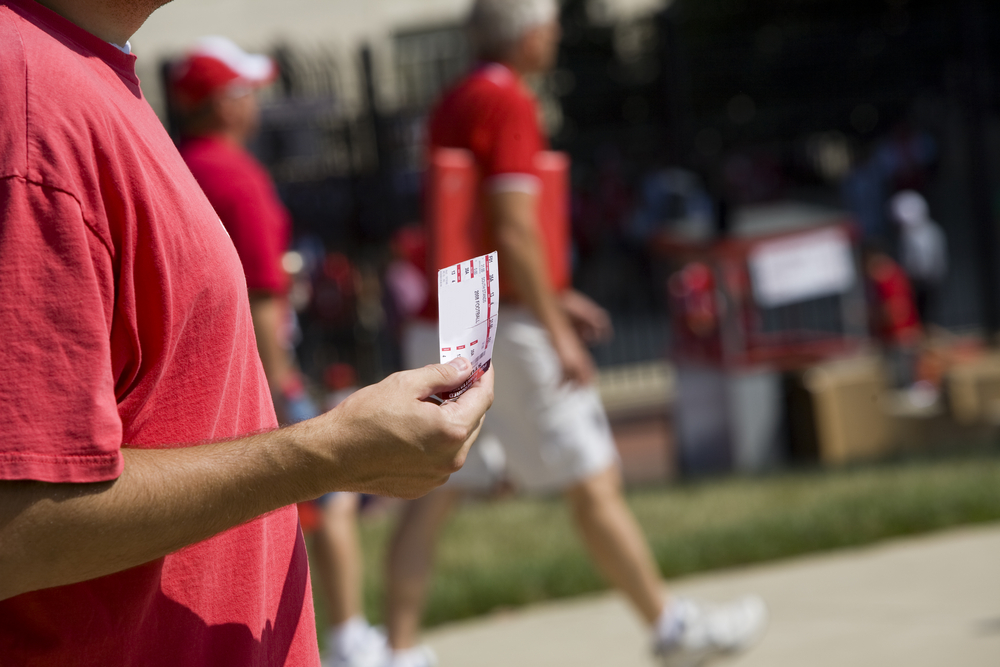New figures from the City of London Police’s National Fraud Intelligence Bureau (NFIB) and Get Safe Online show that incidents of online ticket fraud rose by 55% in 2015, costing the UK public £5.2 million.

According to actual reported crimes between November 2014 and October 2015, major sporting events such as the Rugby World Cup and Premier League football matches accounted for over a quarter of all incidents of ticket scams. This is followed by fraudulent tickets to gigs and festivals (15%).
Those most at risk of buying fake or non-existent tickets are aged between 20-29 (28%) followed by 30-39 and 40-49 year olds (23% for each age group). With the UEFA Euro 2016 Championships coming up in June and the summer festival season not far off, Get Safe Online is urging sports and music fans to be vigilant when trying to buy tickets, especially on social media sites, which are increasingly being used by criminals to facilitate ticket fraud.
Findings show that 21% of crimes relating to ticket fraud were instigated via Facebook and 6% on Twitter. 22% of reported incidents took place on Gumtree.
How to protect yourself from ticket fraud:
- Buy tickets only from the venue box office, promoter, official agent or reputable ticket exchange sites.
- Remember that paying by credit card offers greater protection than with other methods in terms of fraud, guarantees and non-delivery.
- Double check all details of your ticket purchase before confirming payment.
- Do not reply to unsolicited emails from sellers you don’t recognise.
- Before entering payment card details on a website, ensure that the link is secure, in three ways:
- There should be a padlock symbol in the browser window frame, which appears when you attempt to log in or register. Be sure that the padlock is not on the page itself ... this will probably indicate a fraudulent site.
- The web address should begin with ‘https://’. The ‘s’ stands for ‘secure’.
- If using the latest version of your browser, the address bar or the name of the site owner will turn green.
- Ensure any third-party payment services (such as WorldPay) are secure before you make your payment.
- Safeguard and remember the password you have chosen for the extra verification services used on some websites, such as ‘Verified’ by Visa.
- In the event that you choose to buy tickets from an individual (for example on eBay), never transfer the money directly into their bank account but use a secure payment site such as PayPal, where money is transferred between two electronic accounts.
- Check sellers’ privacy policy and returns policy.
- Always log out of sites into which you have logged in or registered details. Simply closing your browser is not enough to ensure privacy.
- Keep receipts.
- Check credit card and bank statements carefully after ticket purchase to ensure that the correct amount has been debited, and also that no fraud has taken place as a result of the transaction.
City of London Police’s Commander Chris Greany, National police lead for economic crime, said: “Ticket fraudsters will use every opportunity they can to try and exploit innocent people who are simply looking to book an event or holiday. The newly released figures show that fraudsters will particularly target those who are spending large amounts of money on flight tickets or tickets for holiday packages.
“The fact that people in their twenties are most likely to fall victim to ticket fraud is concerning as this is the age-group who are known to be most ‘cyber-savvy’. If this group is falling victim it suggests that the fraudulent tickets sellers are very convincing and have the ability to exploit just about every type of internet user.
“We ask that people only buy tickets from official sites and when buying resold tickets ensure that they are buying from vendors who have been approved by the event organiser. if you do fall victim to a ticket fraud please report it to Action Fraud so we can identify how this criminality is being committed and shut it down.”
To report a fraud and receive a police crime reference number, call Action Fraud on 0300 123 2040 or use our online fraud reporting tool.



